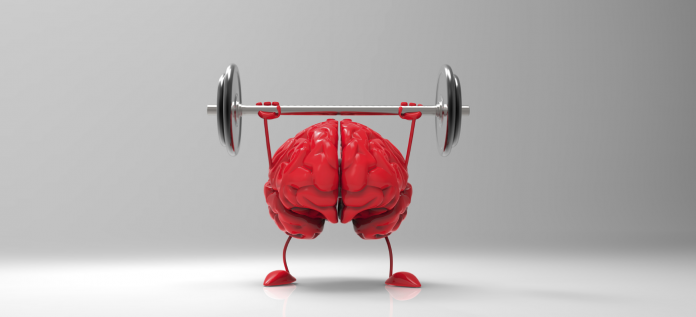How does exercise lower the risks of Alzheimer’s and support overall brain health?
It seems that irisin, a hormone that is released during exercise, may improve brain health and lessen the damage that occurs during dementia, says a new study published this month in Nature Medicine. The study only involved mice, but its findings could help to explain how, at a molecular level, exercise protects our brains and possibly preserves memory and thinking skills, even in people who aren’t in their prime.
Considerable scientific evidence already has demonstrated that exercise remodels brains and affects the thinking system in a positive way.
Back to the first study, researchers have shown in rats and mice that running ramps up the creation of new brain cells in the hippocampus, a portion of the brain devoted to memory formation and storage. Exercise also can improve the health and function of the synapses between neurons there, creating a better communication between brain cells.
In people, epidemiological research indicates that being physically active reduces the risk for Alzheimer’s disease and other dementias and may also slow disease progression.
Studies on humans seem conclusive
Professors from Rush University Medical Center from Chicago have looked at 454 older adults. There were 191 who had dementia and the rest did not.
Participants had physicals and tests of memory and thinking skills every year for 20 years. All agreed to donate their brains for research after death. When participants died, the researchers looked at their brains for signs of dementia and Alzheimer’s disease. The average age at death was 91.
About two years before death, each participant was asked to wear a device called an accelerometer, which measured their physical activity around the clock. Their activities also included extremely low intensity “exercises” that included cleaning house and exercise routines.
Researchers found that participants who were the most active had better thinking and memory skills than those who led more sedentary lives.
People who had better motor skills, the ones that allow us to move and have good coordination, also had better thinking and memory skills, the study found.
The link between higher activity and better thinking remained consistent whether a participant had dementia or not.
And the really good news is that even a small boost in activity helped, lowering dementia risk by 31%. Increases in motor skills were linked to a 55% lower risk.
researchers said physical activity and motor abilities accounted for 8% of the difference in participants’ scores on thinking and memory tests.
What types of exercises help keep our brain healthy?
Different types of activity may benefit different aspects of brain function, like memory or other thinking skills. That’s why, for maximum brain health, you want to aim for a mix of moves, from aerobic to resistance to flexibility and balance.
1.Simple stretching to boost attention
A study published in Health Psychology in 2012, took a close look to 68 sedentary men and women, ages 40 to 56. They were randomly assigned to a cycling training program or a stretching and coordination program. After six months of working out twice a week, both groups showed significant improvement in memory tests compared to a third group that remained sedentary. And the people who’d been doing regular stretching exercises improved their selective attention.
2.Interval training improves thinking skills
High-intensity interval training involves alternating between short periods of a highly aerobic activity (like cycling or running) and a slower-paced activity (like walking or light jogging). After four months of such training twice a week, overweight middle-aged adults were shown to have a broad range of brain benefits, including performing better on cognitive tests involving decision-making, memory, and other thinking skills. Their bodies were better able to deliver oxygen to the brain.
3.Fast paced walking multiplies brain connections
Just 30 minutes a day of brisk walking gave older women the cognitive health of women five to seven years younger, found a study of 2,809 subjects who were already at risk for heart disease, suggested a study from Harvard School of Public Health.
Other research has shown that even walking at your own pace boosts brain connectivity, because many different aspects of the brain are involved.
4.Weight training for attention and memory
Although many people have this fear of not getting too muscular, weightlifters seem to do far better on tests of attention and memory. And it’s never too late to start working with weights.
5.Thai chi is said to expand brain volume and thinking skills
Tai chi represents a gentle mind-body workout based on an ancient martial art. Although it’s true that it doesn’t get the heart pumping, but it has been shown to grow brain volume in older participants.










